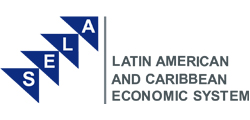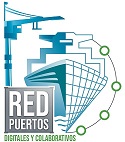BACKGROUND
Pursuant to the Work Programme of the Permanent Secretariat for 2017, the II Regional Meeting of logistic port communities was held in Cartagena, Colombia, from 26 to 29 July 2017. On that occasion, the central objective of the event was to consolidate the temporary working structure that serves as a basis for the effective creation of the Network of Digital and Collaborative Ports, based on a new regional partnership around them, whose mission is to respond to the new challenges of port governance, technological modernization and trade facilitation, promoting the regional port ecosystem towards higher levels of technological interoperability, logistic integration, adaptation to the markets, as well as social and environmental sustainability.
In said event, the objectives were: i) Strengthen links, networking and collaboration among institutions, professionals and academics linked to the logistic port chain; ii) Develop a high-level debate among representatives of international technical cooperation (CAF-development bank of Latin America, SELA and ECLAC), port communities, government, unions, academia and suppliers to the industry on topics that strengthen the ecosystem of digital and collaborative ports in the region; iii) Inform about the working plan of the Technical Cooperation Programme Phase-III with long-standing and new ports; iv) Socialize the organisational structure of the NETWORK TRANSITION STAGE and its working plans for 2017-2018; and v) Create an initial strategic guideline for the NETWORK FORMALIZATION STAGE and make progress with a survey on the adoption of technologies in the logistic port community.
In this context, the Transitional Directive Committee, established in March 2017 and chaired by the national port authority of Peru, presented the working plan for each one of the technical committees and of the Expert Group, highlighting among its fundamental objectives the formalization of the Network as a regional non-profit association. For this reason, this meeting is expected to provide an opportunity for establishing a roadmap that defines the future of the Network as a regional partnership with the participation of the ministries of transport, national port authorities, logistics communities and authorities for international technical cooperation.









